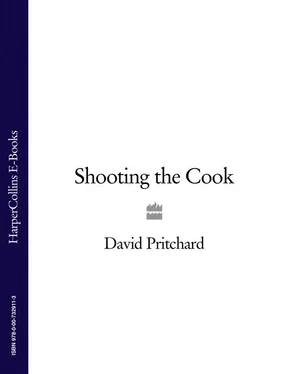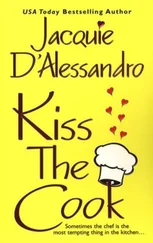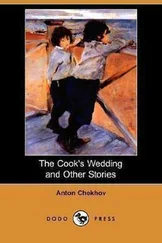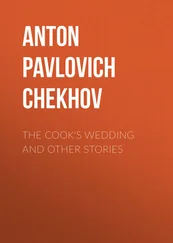It was called the American Restaurant and it was everything John said it was. Although it was very early in the evening, the place was packed. Waiters wearing white gloves were carving huge golden brown ducks at the tables and the bamboo steamers they carried past us left a waft of sweet smelling dough in their wake. By the time a waiter came to take our order I was nearly passing out with hunger. John explained that we each wanted a duck and the full order of pancakes and the other accompaniments that go with it.
‘No,’ said the waiter, rather curtly I thought. ‘You cannot have one duck each. You can only have one duck for two.’
John looked at him and explained we were both extremely hungry and that one duck would not be enough. Unfortunately this only made the waiter angry.
‘One duck enough.’
He began to write the order down on his pad which upset my friend John enormously. ‘He want duck,’ he said, pointing to me, ‘and I want duck.’
I nodded appreciatively and tried to give the impression that one duck to us would be no more than a mouthful.
It seemed we had reached an impasse and I was beginning to think that we were about to get unceremoniously chucked out of the best Peking duck restaurant in the world.
‘Get me the manager,’ said John.
‘Why don’t we just have one duck and share it?’ I ventured helpfully. ‘And if we’re still hungry we could ask for another one.’
John gave me the kind of stare you get from the Scots when you unwittingly mistake them for Celtic instead of Rangers supporters and vice versa.
The manager arrived and was charm personified. He explained that the restaurant had been there since the war serving Peking duck and as far as he knew no one had ever ordered a duck each before. And so that evening John and I made history. They had to put another table next to ours to carve these enormous ducks which looked more like geese. I’m sure they found the two biggest birds in the kitchen to teach us a lesson. The waiters expertly separated the skin from the caramel coloured-flesh and left mountains of each before taking the carcasses away for the chefs to make soup.
‘Make soup?’ I said, looking at the piles of duck and the steamers full of pancakes.
‘Yes,’ said our grumpy waiter, but now he was smiling. ‘First you have duck with pancakes and then you have duck soup. That’s why one duck enough.’
Unfazed by this news, John showed me the art of making and rolling the perfect duck pancake: sauce first then a sprinklng of cucumber and spring onion, then equal portions of skin and meat, all rolled up like a cigar. Crunch. It was sweet and crispy with a lovely aftertaste of duck fat. Soon it became a race and by the time we had counted twenty pancakes each, a dogged silence prevailed. Over an hour later we were still eating. Our appetites had been sated long ago, but we both knew we must devour every morsel.
The pancakes finished, out came the bowls of soup, which were huge and challenging and eventually they beat us. However, the manager and the waiters seemed transformed and treated us with great civility when we eventually left the restaurant and wobbled out into the warm steamy night. Maybe, thirty years later, the staff still recount the story of the Englishman and the Scotsman who had one duck each but couldn’t quite finish the soup.
So that is why the opinion of my friend was so important to me. Not only did John understand the world of television but food is his passion.
Now, I sat on his houseboat dreading his verdict. He turned to me and said rather gravely, ‘We’ve just got enough time to buy another bottle of fizz before they close, because this is going to be a hit!’
Early next morning I caught the first train back to Plymouth and in four hours or so I was walking up the very same corridor that had seemed so gloomy yesterday. People were making their way to the canteen. I saw the usual faces grouped around their usual tables—engineers at one end of the room, journalists and features staff at the other. I recognized the four, or was it five, engineers who had painted such a bleak picture of my efforts. But that was yesterday. Such a very long time ago, and today I was happy and probably a little hung over from the night before. I was up in the world of sun-split clouds in my Spitfire again, the Merlin engine purring like a contented tiger, the wings full of ammo and down below me, clearly outlined against the silver sea, four, or was it five, Heinkel bombers, as fat as turkeys, were making their way home…or so they thought. I pushed the stick forward and flipped the safety off.
‘I think I’ll have a nice cup of tea, Mrs Boggis, and one of your finest cheese scones, a nice warm one straight from the oven please.’
David believe me, cooking’s the new rock ‘n’ roll
Floyd’s Bistro in Bristol had a real touch of class. It was 1982, before the days of open-plan kitchens, white walls, washed wood, and chrome. Floyd’s little restaurant smelt right, rather like those wonderful cafés du commerce that adorn any self-respecting market town in France. As soon as you opened the door you were greeted with a waft of good coffee, hot butter with a touch of garlic, and just a hint of Gauloise, Floyd’s cigarette of choice. It even had a real grumpy French waiter, who looked like a consumptive Bryan Ferry. On one wall was a mounted head of a huge antelope or it might have been a gnu, its long horns festooned with hats and umbrellas. The Bistro was packed when we got there and we were shown to our table in the middle of the room.
I’d been tipped-off about Mr Floyd by Andy Batten-Foster, the presenter of RPM , which had been running for four years now. Andy had met Floyd before, in a Berni Inn, which might sound strange but there was nothing wrong with a Berni Inn in those days: a prawn cocktail, a decent steak, and black forest gateau, thank you. He really liked Keith and thought he’d be good to have on the programme. However, the thing that most impressed him was that a waitress had spilt a glass of red wine over the brand new Burberry trench coat that Floyd had bought that day and worn for the first time that evening. He was clearly proud of it because he didn’t want to take it off. But he didn’t bat an eyelid. Staring at the red stain he just said, ‘Gracious me my dear, I wouldn’t worry about that—all it needs is a damp cloth and it’ll be fine.’ But deep inside, Andy knew he was crying.
Andy had been talking to me for ages about Floyd’s Bistro. Apparently he’d been once before when Floyd sent a table of four packing because they insisted on ordering well done steaks. In so many words Keith told his wide-eyed audience that his entrecôtes were of the finest quality, from pedigree cattle reared on lush Somerset meadows blessed with crystal streams and he was fucked if he was going to cook them well done thank you very much. He showed them the door and suggested if they hurry they might just make the Wimpy before it closed.
On another occasion a regular customer complained that his Wiener schnitzel, a thin escalope of veal dipped in egg and breadcrumbs, was really tough. Floyd came out of the kitchen, personally apologized to the man and took his plate away saying as he retreated that the most perfect Wiener schnitzel would be coming up any minute. Down in the kitchen Floyd was reputed to have cut a couple of beer mats roughly into the shape of schnitzels, soaked them in a little white wine to soften, rubbed them with garlic butter, seasoned them and dipped them in egg and breadcrumbs, and popped the lot into hot olive oil. The man ate it uncomplaining while Floyd, glass in hand, watched him joyously devour every mouthful. Such was the reputation of the man. Floyd offered a little bit of theatre in a rather staid part of Bristol. No wonder the place was packed.
Читать дальше












